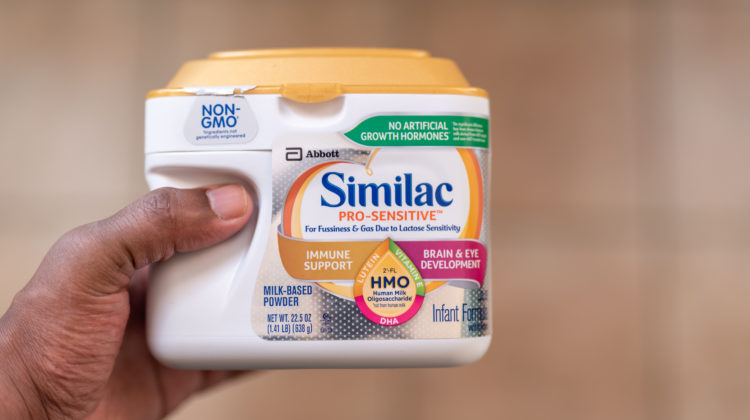[ad_1]

By Matthew Rogenes, Stag Luizza and Christina Grube, MTN Correspondent
Plaintiffs accuse Abbott Laboratories of negligence after receiving baby formula containing Cronobacter, a bacteria causing sepsis and meningitis in infants. Though rare, the germ can live in dry foods such as powdered milk and baby formula and spreads through surface contact. On August 5th, the Judicial Panel for Multidistrict Litigation officially consolidated 18 plaintiff claims against the baby formula producer.
Six months before the MDL, Abbott recalled multiple infant formulas–Alimentum, Similac and EleCare baby–for risk of Cronobacter, prompting an FDA investigation. The investigation looked into Abbott’s operations at its Sturgis, Michigan facility. The FDA found Cronobactor in a number of locations throughout the plant. It also found that Abbot failed to implement microbe safeguards in multiple production areas and Abbot workers failed to wear proper protective gear when working with baby formula.
Abbott’s own sampling identified Cronobactor in its Sturgis facility. During the month of February 2022, Abbott found Cronobactor in production areas on 20 occasions. A review of Abbott’s internal “Non-Conformance Reports” from September 2019 and June 2020 indicate that two finished products tested positive for Cronobactor. Abbott produces approximately 46.2% of baby formula in the US, with about one-quarter of the US supply specifically produced at its Sturgis plant.
Abbott gave a statement after the FDA probe saying, “Abbott tests products prior to distribution, and no Abbott formula distributed to consumers tested positive for Cronobacter sakazakii or Salmonella. Testing of retained products by Abbott and FDA for Cronobacter sakazakii and/or Salmonella all came back negative.”
In a separate press release Abbott stated, “Genetic sequencing on the two available samples from ill infants did not match strains of Cronobacter in our plant. Samples from ill infants did not match each other, meaning there was no connection between the two cases.”
“The infants,” Abbott continued, “consumed four different types of our formula made over the course of nearly a year and the illnesses took place over several months in three different states.” Lawyers point to whistleblower reports indicating that Abbot falsified records and say a common thread is that all of the babies received recalled formula manufactured in Abbot’s Stirgus facility.
Abbott claimed to find no Cronobacter in testing of products shipped to customers and after a brief closure, reopened their Sturgis facility in early July.
Abbott has multiple MDL’s pending against them in the Northern District of Illinois for fatal infant reactions to formula manufactured at the Sturgis, Michigan facility.
MDL Chief Judge Pallmeyer Slams Abbott’s Snap Removal Ploy
Branstetter, Stranch & Jennings attorneys were successful in defeating Abbott Laboratories’ attempt to circumvent state-level litigation in Illinois cases alleging that its Similac® formula contributed to a deadly illness in premature infants.
Chief Judge Rebecca Pallmeyer of the Northern District of Illinois presides over the MDL, currently consisting of 89 lawsuits, with similar lawsuits filed in state court. Several dozen claims in the federal MDL allege Similac® caused severe illness or death from necrotizing enterocolitis (NEC) in premature babies.
In the Circuit Court of Cook County, Illinois, Abbott attempted to utilize a loophole known as “snap removal.” Using this method, defendants monitor electronically available dockets to spot state-level complaints and then race to remove them before a sheriff’s deputy or court-appointed representative has a chance to serve them. If a defendant is successful in doing so, the case can then be “snapped” to federal court, a venue favored by large corporations.
With snap removal, Abbott initially removed four related Cook County lawsuits to the federal level, an action contested by Stranch and Gastel. On June 22, Judge Pallmeyer rejected Abbott’s use of snap removal, calling it “absurd,” and sent the four suits back to state court.
“Abbott’s interpretation … would create a race between the Cook County Sheriff and forum-state defendants, totally divorced from plaintiff’s intent to properly serve and join those defendants,” Judge Pallmeyer wrote. “A few hours or even a few minutes’ difference in timing of service — a matter wholly outside the plaintiff’s control — cannot be a basis for federal court action.”
Studies on Medical Risk:
[ad_2]




